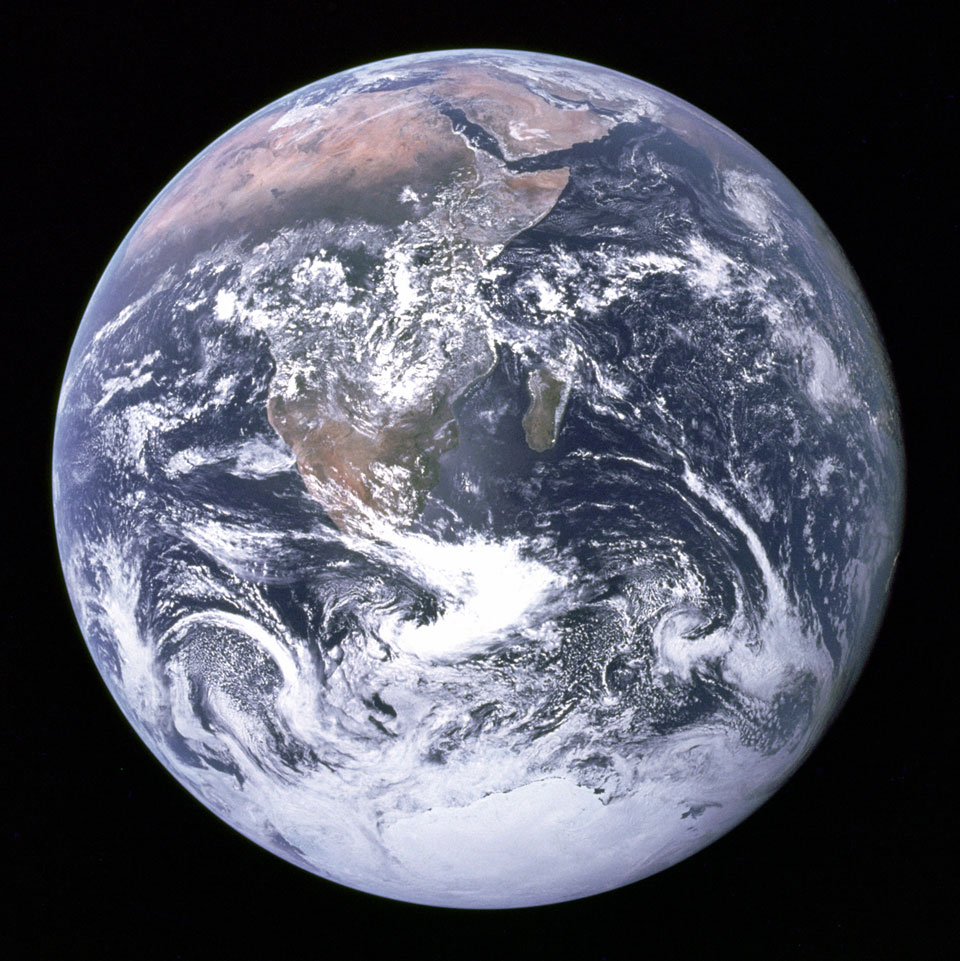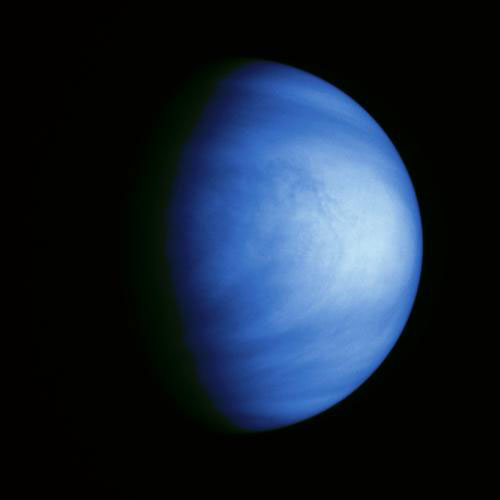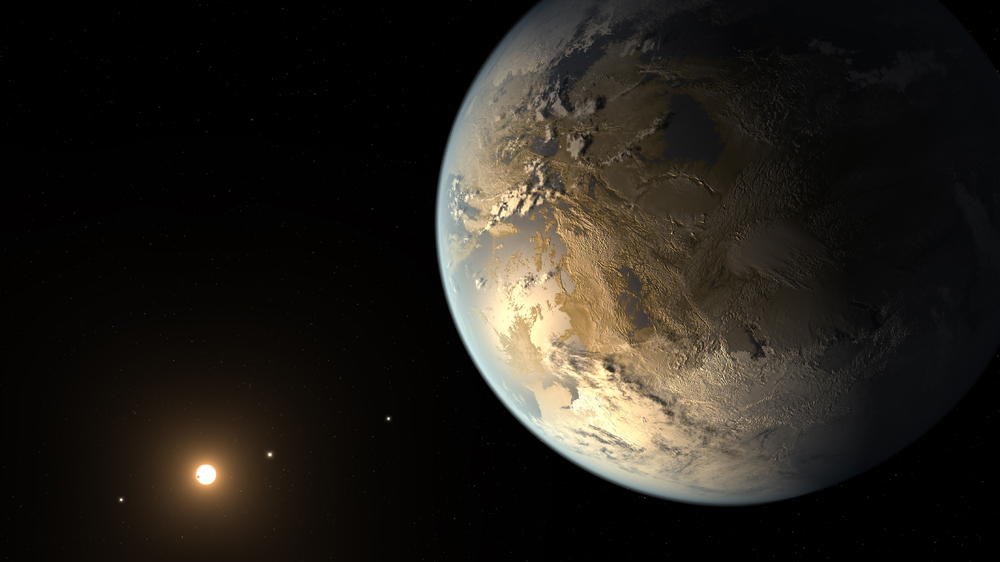You have lived on Mars for many months, and now it is time to go back to Earth. Your journey will take at least three months, and so you’ll have plenty of time on the way home to think about all the new things you have learnt, and to plan your next space adventure!
What have you learnt?
You have discovered that travelling through space, and living successfully on Mars, involves a lot of important science! The following question will remind you about some key points:

NASA: photograph of Earth, taken during the Apollo 17 lunar mission in 1972
Continue and extend your review of your time on Mars by playing Mars Bingo!
At the end of your review, you might discuss in groups, or as a class, whether humans could actually live on Mars, and if so, for how long, and in what conditions?
If you had travelled to Mars, and managed to live there successfully for a period of time, you might be thinking about your next mission into space. Where could you go?
Mars Bingo
View Practical >You need to remember that planets, even within our solar system, are very far away, and though the space rockets available to us can move very quickly, they are not like the space craft in films and TV which can move incredibly fast, sometimes at speeds greater than the speed of light! And even if you could reach very far-away planets, you might find it very difficult to live on them, or even land your space-craft.

NASA/JPL: Colorised picture of Venus, taken in 1990
Other Planets
Use the following links to find out more about the planet Venus, and the next planet along from Mars, the giant planet Jupiter. Then complete the table below before clicking on the rocket button to compare your answers:
Venus: http://solarsystem.nasa.gov/planets/venus/needtoknow
Jupiter: http://solarsystem.nasa.gov/planets/jupiter/needtoknow
| Venus | Jupiter | |
|---|---|---|
| Is the planet a similar size to Earth? | ||
| Is the planet a rocky planet like Earth? | ||
| What is the temperature on the planet? | ||
| What is the atmosphere like on the planet? | ||
| Would it be easy to live on the planet surface? |
| Venus | Jupiter | |
|---|---|---|
| Is the planet a similar size to Earth? | Yes | Very much bigger (the largest planet): 11 times wider than Earth |
| Is the planet a rocky planet like Earth? | Yes (but it doesn’t have any moons) | No, it is mainly made of gas, so no solid surface (it has over 50 moons!) |
| What is the temperature on the planet? | 480˚C (very hot) | -110˚C (very cold) |
| What is the atmosphere like on the planet? | Mostly carbon dioxide (CO2) with clouds of sulphuric acid | Mostly Hydrogen gas (H2) and helium gas (He2) |
| Would it be easy to live on the planet surface? | No - much too hot, and no oxygen to breathe. Any water would have evaporated | No - much too cold, no water, no oxygen to breathe, and no solid surface to stand on |
What makes the Ideal Planet?
Neither Venus nor Jupiter would be good planets for you to visit! Not only are they very far away, but conditions on the planets are too extreme for most living organisms. What would an ideal planet be like? Add your own labels to the diagram below to comment on temperature, atmosphere, the nature of planet's surface, and the living organisms present.
Your ideal planet is probably rather like Earth! In fact, any planet that could be habitable (ie. that we could live on) is likely to be at a similar relative distance from the Sun as Earth.
Exoplanets
Scientists believe that there may be Earth-like conditions on some moons of planets within our solar system, and on some planets far beyond our solar system: these are called ‘extra-solar planets’, or ‘exoplanets’.

An artist's impression of Kepler-186f, the first known Earth-sized exoplanet in a star's habitable zone.
Image: NASA Ames/SETI Institute/JPL-Caltech
Research Exercise
You need to provide a government minister with some important information on exoplanets. This will help the minister to make decisions about which planets to investigate in the future.
Use the article on ‘exoplanets’ linked below to help you write a brief list of key points, including:
- How many exoplanets have been found so far
- How they are discovered
- What they are like
- Whether any may be habitable
You have discovered a great deal about Mars, and some other planets, but you will probably realise that there is still a vast amount to learn about the Universe. You can learn quite a lot just by looking up at the night sky, and it helps if you have binoculars or a telescope. (See: http://amazingspace.org/tonights_sky/; http://www.bbc.co.uk/programmes/p04fyqv3)
You can also get involved in space science by joining in with many online events organised by NASA (see https://www.nasa.gov/solve/index.html ), and organisations such as the UK Space Agency. (See: https://www.gov.uk/government/organisations/uk-space-agency)
You might like to contact them to let them know about your thoughts on Mars, and space exploration. There are several TV programmes that could give you more information such as BBC’s monthly ‘The Sky at Night’. ((http://www.bbc.co.uk/programmes/b006mk7h)